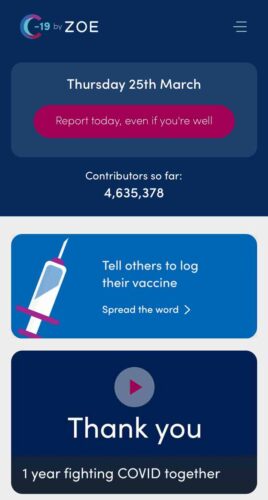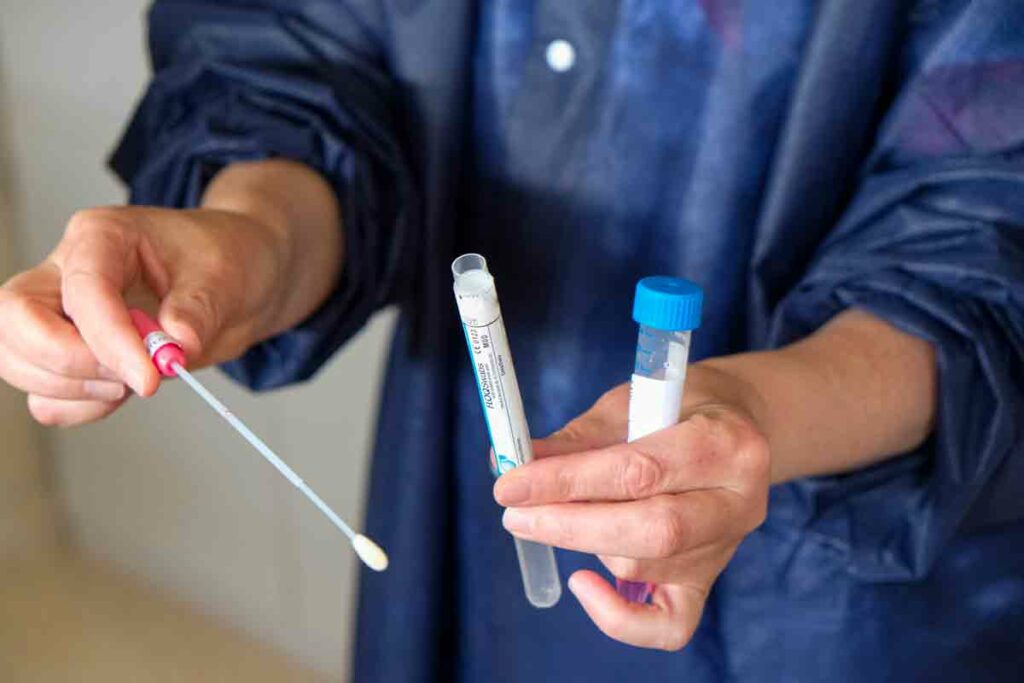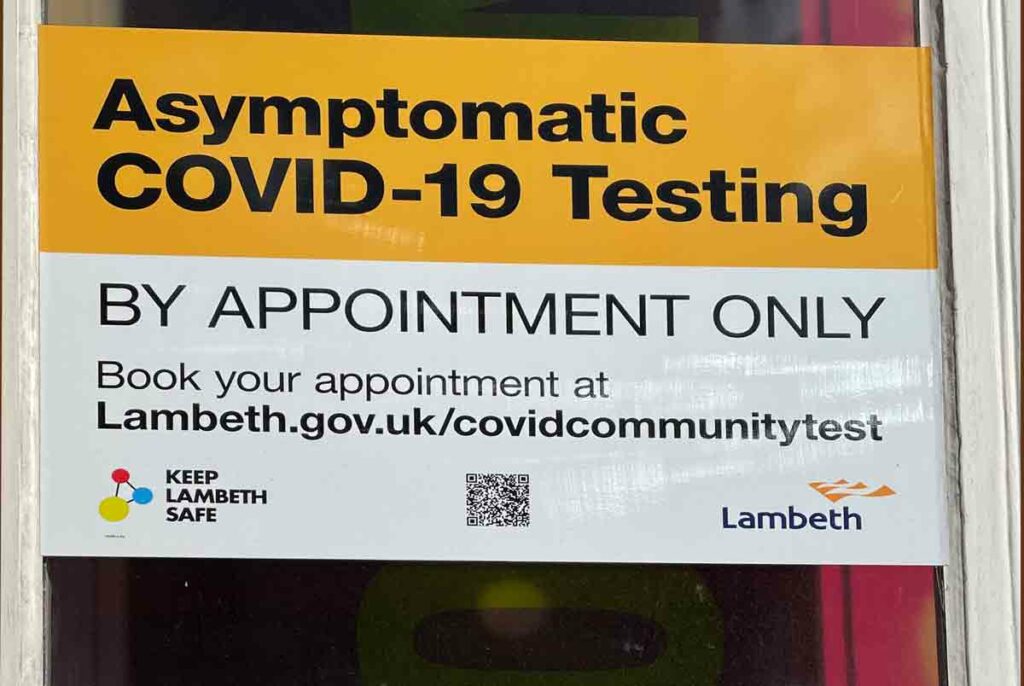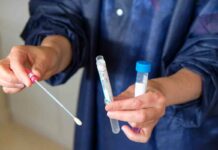
Charlotte Latimer meets the team behind app-based Covid research at King’s College – who would like to see more local people get involved
In March last year, as offices and business were closing around them, the team behind the ZOE health app, based at King’ College Hospital between Brixton and Camberwell, were wondering what they could do help during the COVID crisis.
The team realised that, as well as its existing use of supporting people to monitor their gut health, the app could also be used to track the symptoms of Covid 19.
The app now receives government funding and the more people who use it, the more accurate the research can be.
Local Lambeth residents are a definite target for the researchers.
“We persuaded the government to add anosmia [loss of sense of smell] to the list [of Covid symptoms] back in May, and now it is clear we need to add more,” says Tim Spector, professor of genetic epidemiology at King’s College and ZOE Covid symptom study project lead.
“This is especially important with new variants that may cause different symptoms.
“The message for the public is clear: if you’re feeling newly unwell, it could be Covid and you should get a test.”
The team is keen to encourage people to get tested for Covid-19, even if they don’t have three of the main symptoms listed on the government website.

“When PCR (polymerase chain reaction) testing was scarcely available, it made sense to restrict it,” says Dr Claire Steves, reader at King’s College and lead scientist on the ZOE covid symptom study app.
“Now in the UK we have plenty of tests available, thanks to so much effort by labs all over the country, and every positive person detected could save lives.”
There are 13 Covid-19 symptoms listed on the ZOE website, but the team believe there are more.
Among the symptoms listed on the website are severe fatigue, headache and unusual pains in the chest, abdomen or muscles.
“We’re encouraging people to get tested, even if they have other symptoms, like diarrhoea,” explains Ellie Griffiths, communications manager for the Covid symptom study.
“Once everything opens up again, it’s really important that people know the symptoms.
“If you’re not feeling well get tested as soon as possible.
“It’s around and, in order to prevent a third wave, it’s up to all of us. There’s so much capacity for testing now.”

The team’s research has been an essential component of the governments’ Covid response and its members are now keen to get more people to use the app so they can learn more about the virus and the vaccine.
This initiative could also help with vaccine hesitancy, which the Brixton Blog has recently reported on.
So far, out of the people who have reported their vaccination responses to the ZOE app, only 33% have had side effects, which the team reports as being lower than number of people who report side effects after having a seasonal flu jab.
“We are urging as many people as possible to download the ZOE app and log their vaccines with us,” says Tim Spector. “So that we can independently monitor how we all react differently and how the vaccines impact the overall pandemic.”

Even though there are already 4.6million people across the world using the app (mainly in the UK, US, and Sweden), the team would like a wider range of people to report their responses using the app so the team can build a better understanding of how people are responding to vaccines.
The ZOE team found that 95% of their existing app users said they would have a COVID-19 vaccine. The Oxford OCEANS survey found that only 72% of the people it surveyed would be willing to have a vaccine.
Research from ZOE also found that: “Users who identified as Black were more likely to be hesitant than people from other ethnic backgrounds, as were people from more socially deprived areas, and that people aged 18-50 were more likely to be hesitant than those who were older.”
The team has created a map that shows where vaccine hesitancy is higher according to their data.
It found a hesitancy rate of 6.23% in Lambeth, based on 6,925 respondents.





